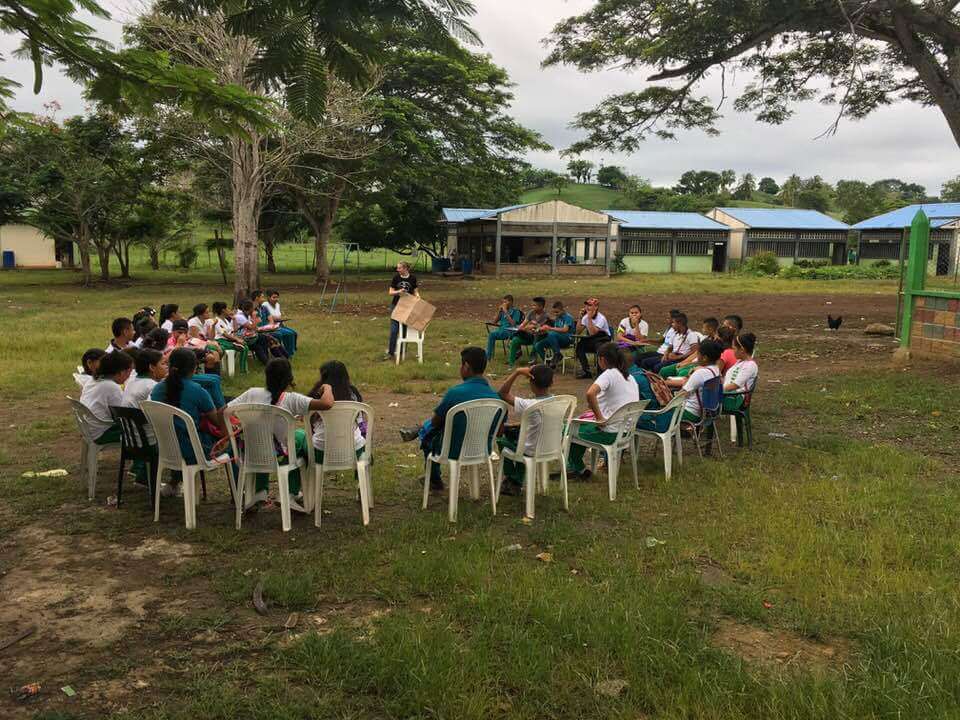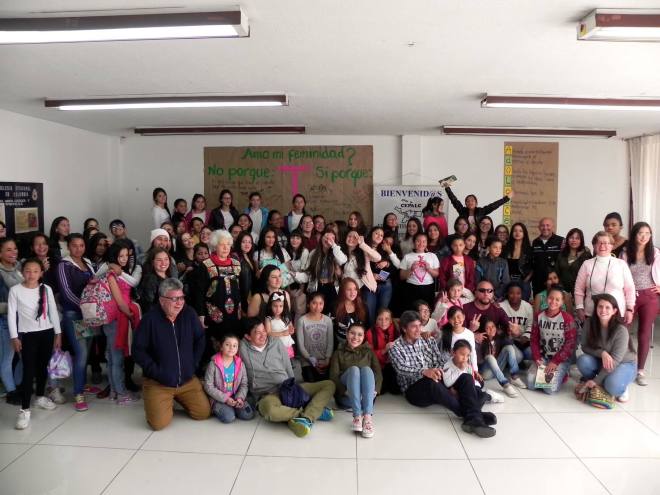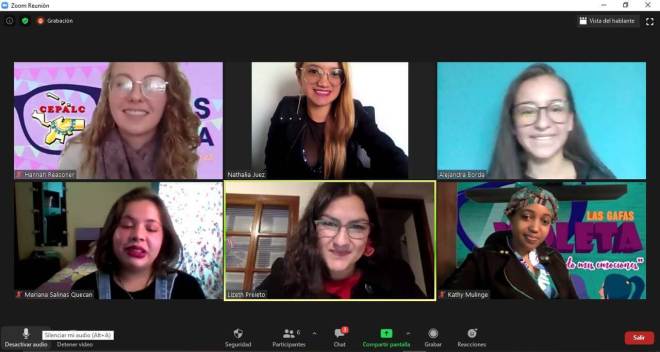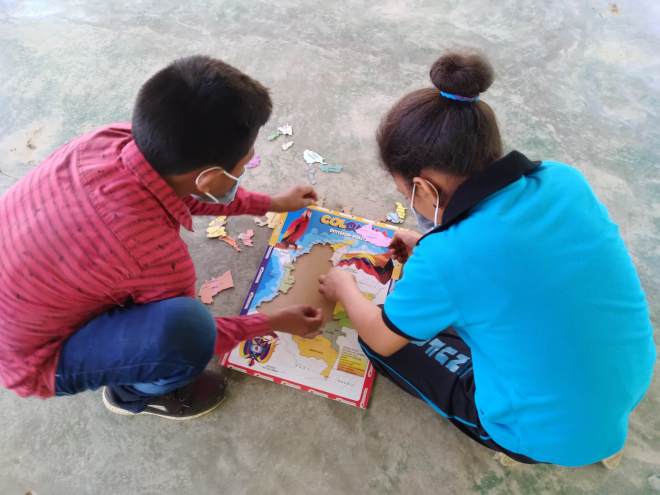Defending human rights and building the kindom of God

Reasoner leads a group discussion with students in Córdoba, Colombia during a CEPALC workshop on gender stereotypes. PHOTO: DANIEL SILVA
By Hannah Reasoner
April 14, 2021 | BOGOTÁ, COLOMBIA
Since 1978, Amparo Beltrán Acosta has worked with the most marginalized communities in Colombia to train groups in communication media, human rights, gender equality and peace. After studying theology in Italy and communications in Canada, Beltrán founded Centro Ecuménico Popular para América Latina de Comunicación (CEPALC), or the Latin American Ecumenical Center for Popular Communication, in her home country.
Her mission is to empower the most impoverished groups in Colombia with communication resources to share their stories. Working with women, children and youth, and Afro and Indigenous communities from the capital city to the rural countryside, CEPALC offers training workshops, a digital magazine and an online radio station. Empowering women and advocating for gender justice and equality is a central theme in the organization’s work, a perspective that often makes it a counter-culture space in Latin America and the Caribbean, where the dominant culture is “machista,” or patriarchal and authoritarian.

An active partner in Colombia
Young adult United Methodist missionaries have worked with CEPALC since Global Justice Volunteers sent the first volunteer in the early 2000s, a program that later folded into what is today Global Mission Fellows. I served as a Global Mission Fellow from 2017-2019 and returned in 2020 as a missionary. I now serve as the Assistant for Partnership and Network Development with CEPALC and Global Ministries’ Latin American and Caribbean Regional Office. I continue to produce radio programs in English and Spanish and work alongside CEPALC leadership teams that provide ecumenical workshops throughout the country. At the same time, this new missionary placement helps to form and strengthen connections with missionaries and mission partners in Latin American and the Caribbean. Last year, the regional office and United Methodist Communications worked with more than 20 Methodist churches and ecumenical partners to provide virtual training workshops in communications during the pandemic. CEPALC provided a workshop and discussion on inclusive communication and journalistic ethics during the event.

The organization partners with Global Ministries in additional ways as well, such as for the creation of communication resources for local churches, programmatic work with Indigenous and former guerilla communities and support of Colombian Nationals in Mission.
Human rights in daily life
Through CEPALC’s training workshops, participants learn about human rights, gender equality and social issues by way of music, art, literature, theater, video, photography, radio and other creative media. At the end of each workshop, participants take what they have learned and create their own play, puppet show, video, radio program, piece of art, etc. to share with others. The sessions employ an active methodology and pedagogy that encourages participants to continue sharing what they have learned with their communities long after the workshop session.
Mariana Salinas first came to CEPALC children’s workshops when she was 5 years old. She is now 17 and part of the leadership team that puts together virtual workshops for women and girls, called Gafas Violeta.
“The way that CEPALC opened our eyes to the world was impactful,” says Salinas. She remembers being in workshops with Felix Posada Rojas, CEPALC’s director, and learning about Colombian and world history in a way that she did not experience in school. “Felix taught us about the world through storytelling,” she says.
“La Verdadera Historia de los Gatos con Botas” is one of the stories that Posada Rojas uses to teach about children’s rights. In it, two cats go on a magical journey to see the ways in which children are treated and neglected in the world. Elementary school students from the María Auxiliadora School in Mongua, Boyacá turned this story of magical cats in boots into their own play and video to show their families, community and the world the importance of children’s rights.
CEPALC opened a recording studio in its office and an online radio station, Encuentro Radio, in 2015. Encuentro Radio gives the microphone to people whose voices have been historically silenced. The radio station is open to community groups, students, churches and other organizations to host weekly or monthly programs. Religious groups like Servicio Internacional Cristiano de Solidaridad con los Pueblos de América Latina (International Christian Service of Solidarity with the Latin American People) and Mesa Eco Teológica Interreligiosa de Bogotá (Interreligious Eco-Theology Table of Bogotá) have a space to share their work and discuss important issues with listeners all over the world. These programs share both the Good News as well as the not-so-good news of the work that still needs to be done to build a society and culture that is accepting of all God’s diverse children.
Reaching beyond the walls of the church
CEPALC plants seeds that continue to grow within individuals and their communities. Like Salinas, most of the organization’s current team of workshop leaders and radio producers first came to the organization as children who participated in these interactive workshops. They return as adults to train a new generation in communication and human rights.
Evangelization today moves far beyond simply inviting people into a church building. More and more, evangelization is about how our actions and daily work, in whatever context, communicate the love of God and transform communities.

CEPALC builds the kindom of God beyond the walls of the church – a kindom in which all people are loved, accepted and treated with respect.
In Colombia, people in the most marginalized and excluded communities are becoming local leaders, challenging sexist and discriminatory customs and creating a more inclusive and egalitarian society – a more accurate picture of the body of Christ.
Hannah Reasoner is a United Methodist missionary who serves in Colombia with CEPALC and the Latin American and Caribbean Regional Office.

